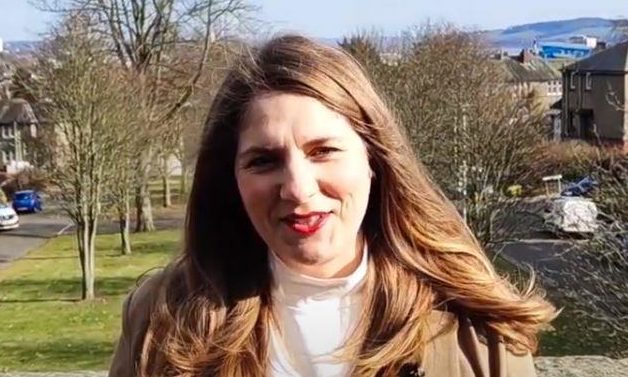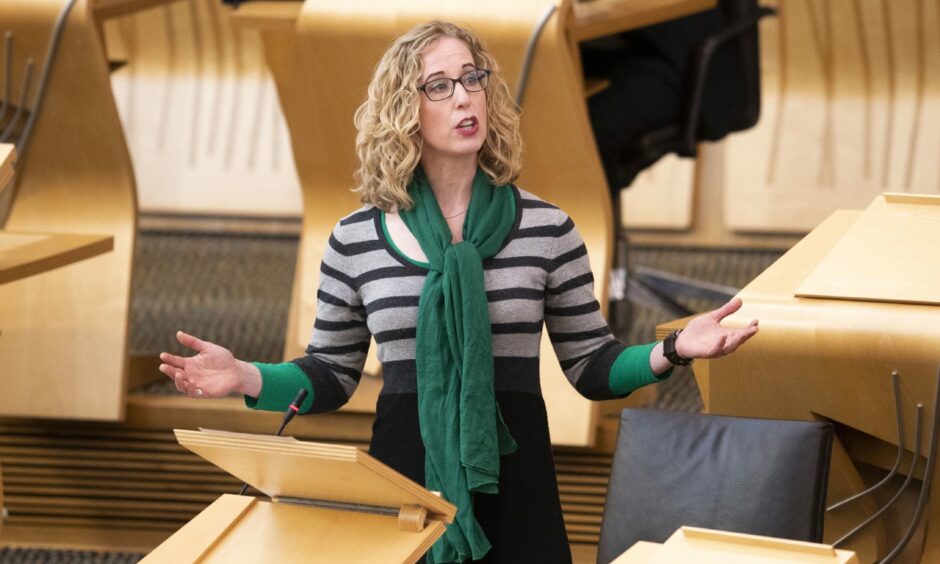Oil and gas workers could find it easier to get trained for a shift into “greener” jobs under proposals considered by the Scottish Government.
Offshore workers have so far faced “prohibitive” costs and “fragmented” training as they look to transfer their skills from oil and gas towards cleaner forms of energy.
To address the problem, the government was urged to create an offshore training “passport”.
Research from Platform, Friends of the Earth Scotland and Greenpeace UK revealed offshore oil and gas workers are paying over £1,800 on average in training costs.
Nearly two-thirds of workers received no financial support from their employers to help cover the costs.
North-east Labour MSP Mercedes Villalba led a debate in the Scottish Parliament on Thursday on the need for such a scheme, ahead of the COP26 climate summit beginning in Glasgow this weekend.
Ms Villalba claimed Scotland is “very far” from achieving a “worker-led transition” in the offshore energy sector.
She said many offshore oil and workers are “at great personal expense often asked to duplicate skills and qualifications which they already have”.
She told MSPs about a former oil and gas worker who took the decision to transition to working primarily in offshore wind.
Ms Villalba said her constituent, who she named only as James, had to spend £6,000 of his own money on training and certification costs over the last two years to transfer to the cleaner industry.
The north-east politician said: “Left to their own devices, the sector’s main training bodies have failed to agree common standards.
“They have instead developed rival standards, training modules and qualifications and although the Scottish Government provides warm words about the skills guarantee and the jobs transition, there’s no hint they’re willing to intervene in a meaningful way.”
‘Progress is under way’
Fragmented training in the sector has led to a situation where workers often have to duplicate training and qualifications that they already possess at considerable personal expense.
Lorna Slater, Scottish Government minister for green skills, said offshore training passports is “something she has been looking into” as part of her portfolio.
The Scottish Greens co-leader told MSPs the issue is “particularly important” ahead of COP26 and is a “long-standing issue”, especially since the 2014 oil and gas downturn.
Ms Slater, who was a renewable engineer before her entry to Holyrood, confirmed “further progress is under way” with OPITO, the global skills body for the oil and gas industry through the Energy Skills Alliance, to develop a “solution” to the problem.
This would allow “easier skills transferability across offshore energy” in order to create the workforce needed to deliver the energy transition.
The work would establish an “integrated skills strategy for the net zero energy industry across Scotland and the UK” and will map “energy skills demand”.
‘Need for pace’
John McDonald, CEO of OPITO said it is “driving work to make sure that safety, technical and worksite standards are recognised across the energy sector and people can fully utilise their transferable skills”.
He added: “But we can’t do it alone. We need employers, trade unions, accreditation bodies and governments to work together to recognise and align standards.
“Today’s debate underlines the need for pace. Now is the time for collaboration and action to empower a flexible energy workforce for the net zero future.”



